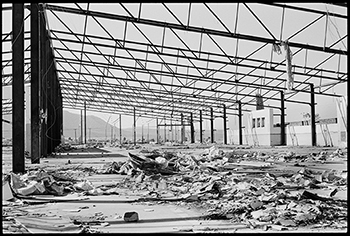Latest News Archive
Please select Category, Year, and then Month to display items
17 June 2020
|
Story Dr WP Wahl

The Division of Student Affairs (DSA) prioritises innovation to meet the challenges of food insecurity and malnutrition among students. To this end, several student volunteers and student governance structures are collaborating with the DSA on various initiatives.
During 2019, various conversations were held about the possibility of creating a health-promoting food environment at the UFS where students and staff are well informed and empowered to take appropriate action regarding their food and nutritional needs. These conversations resulted in an institutional strategy to address the food environment at the UFS. Student representatives serve on a technical committee that directs the implementation of this strategy. In this regard, several initiatives have already been launched.
Students from residences and other student communities have planted vegetable gardens on the Bloemfontein Campus with the assistance of KovsieACT and the Faculty of Natural and Agricultural Sciences. Students and staff are already harvesting and distributing vegetables to needy students every week. Measurements were put in place to continue this during the COVID-19 period. The following vegetables were planted: spinach, cabbage, beetroot, broccoli, cauliflower, and carrots.
Food parcels, donated by Tiger Brands and Gift of the Givers, are continuously handed out by DSA staff and student volunteers. In this regard, 540 food parcels have already been handed out on the Bloemfontein Campus during the COVID-19 period alone. During the same time, 117 students received food parcels on the Qwaqwa Campus. The innovation of this food parcel project rests on the fact that business, NPOs, UFS students, and DSA staff are collaborating to address food insecurity and malnutrition.
More collaborative initiatives will be implemented over the next 12 months. The DSA staff and students are already working with the Department of Dietetics and Consumer Sciences to create information packages about the preparation of low-budget nutritious meals.
Related article:
Vegetable tunnels established to continue the fight against food insecurity
Award-winning photographer exhibits ravages of war, 25 May 2016 until 17 June 2016
2016-06-02

The ruins of the Dimbaza Border Industrial Park built
in the 1970s as a source of cheap labour for industrialists
and ostensible employment for Ciskei Homeland citizens.
This industrial zone collapsed after 1994.
Photo: Images courtesy of the Galerie Seippel.
All images © Cedric Nunn
Cedric Nunn’s latest photographic exhibition, Unsettled: One Hundred Years War of Resistance by Xhosa Against Boer and British, opened on 25 May 2016 at the Johannes Stegmann Art Gallery of University of the Free State, and will run until 17 June 2016. Since 2014, the exhibition has travelled through South Africa and the USA as well as Germany.
The photographer, documentary film-maker, and artist’s photographic journey was launched in the early 1980s in Durban. In 2011, he won the first FNB Joburg Art Fair Award.
Narratives of the victors and the vanquished
Unsettled deals with the nine wars that Xhosa people were subjected to between 1779 and 1879 in their fight against Afrikaner and British colonial settler forces. Nunn’s art seeks to instigate social change, and highlight lesser-seen aspects of society.
The work emanated from his awareness of a notable gap in the telling of this piece of South African history, as well as the fact that, to date, little has been done to memorialise these acts of colonial aggression and Xhosa resistance. He decided to document the land where these struggles took place.
“Through revisiting this painful past in the contemporary scenes of today, this work attempts to place the present in its factual context of dispossession and conquest,” said Nunn.
Unsettled forms the first component of what will be a trilogy. The next component will address the legacy of colonial dispossession through “bringing ‘the first inhabitants’ back into the picture by giving a select number of self-describing Khoi, Griqua, and San or Bushmen a contemporary face and presence”. The final component will look at slavery.